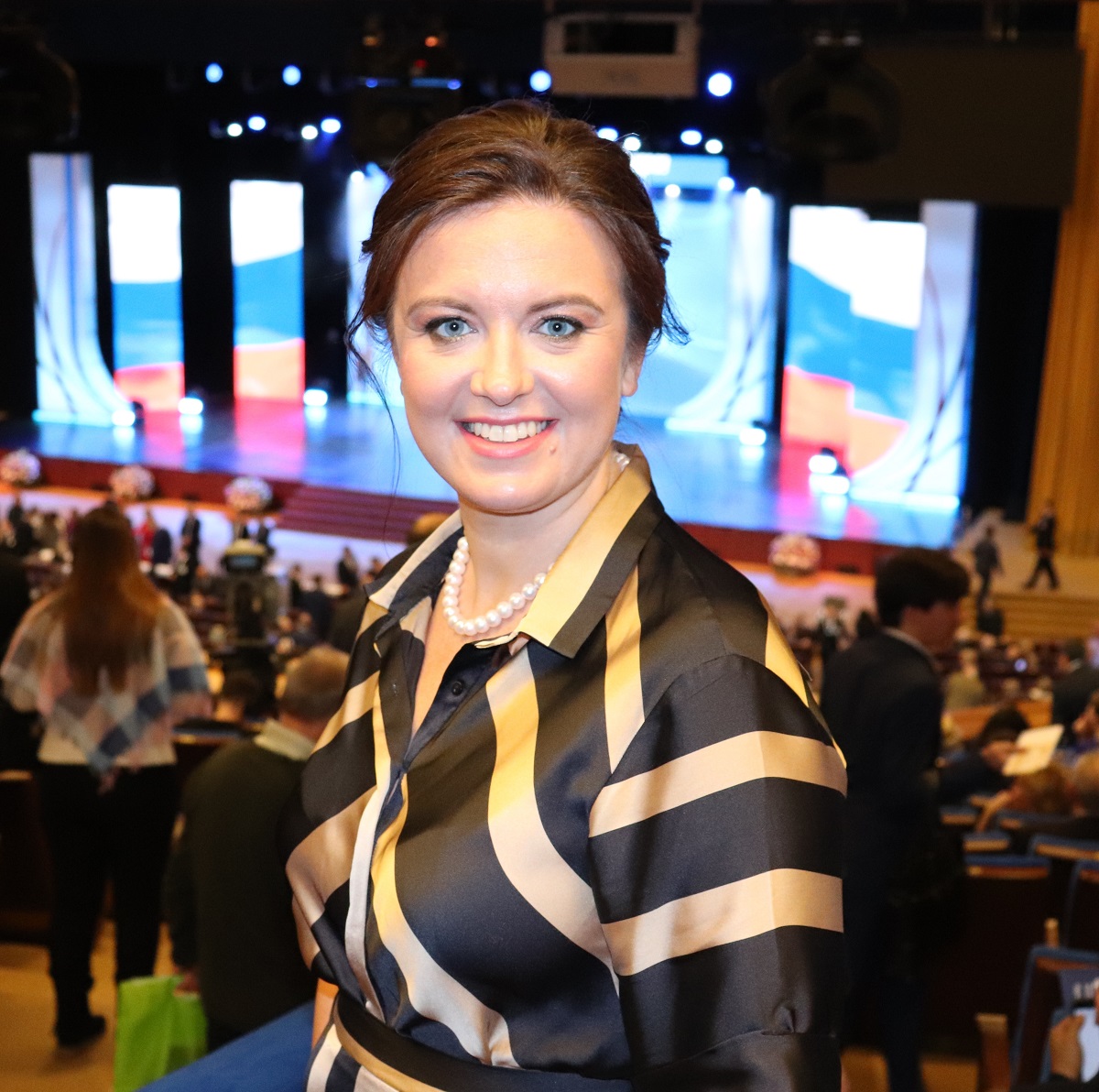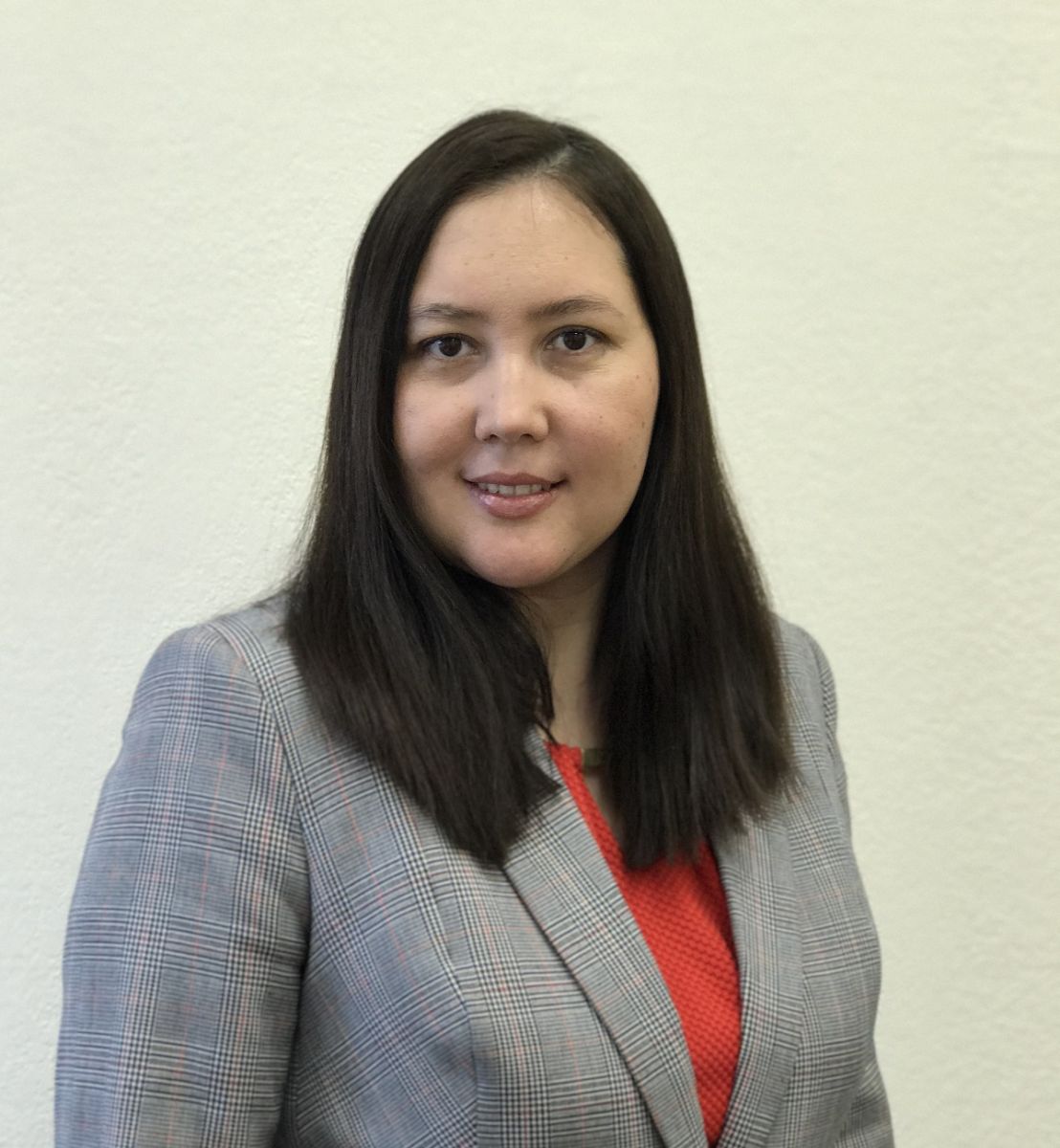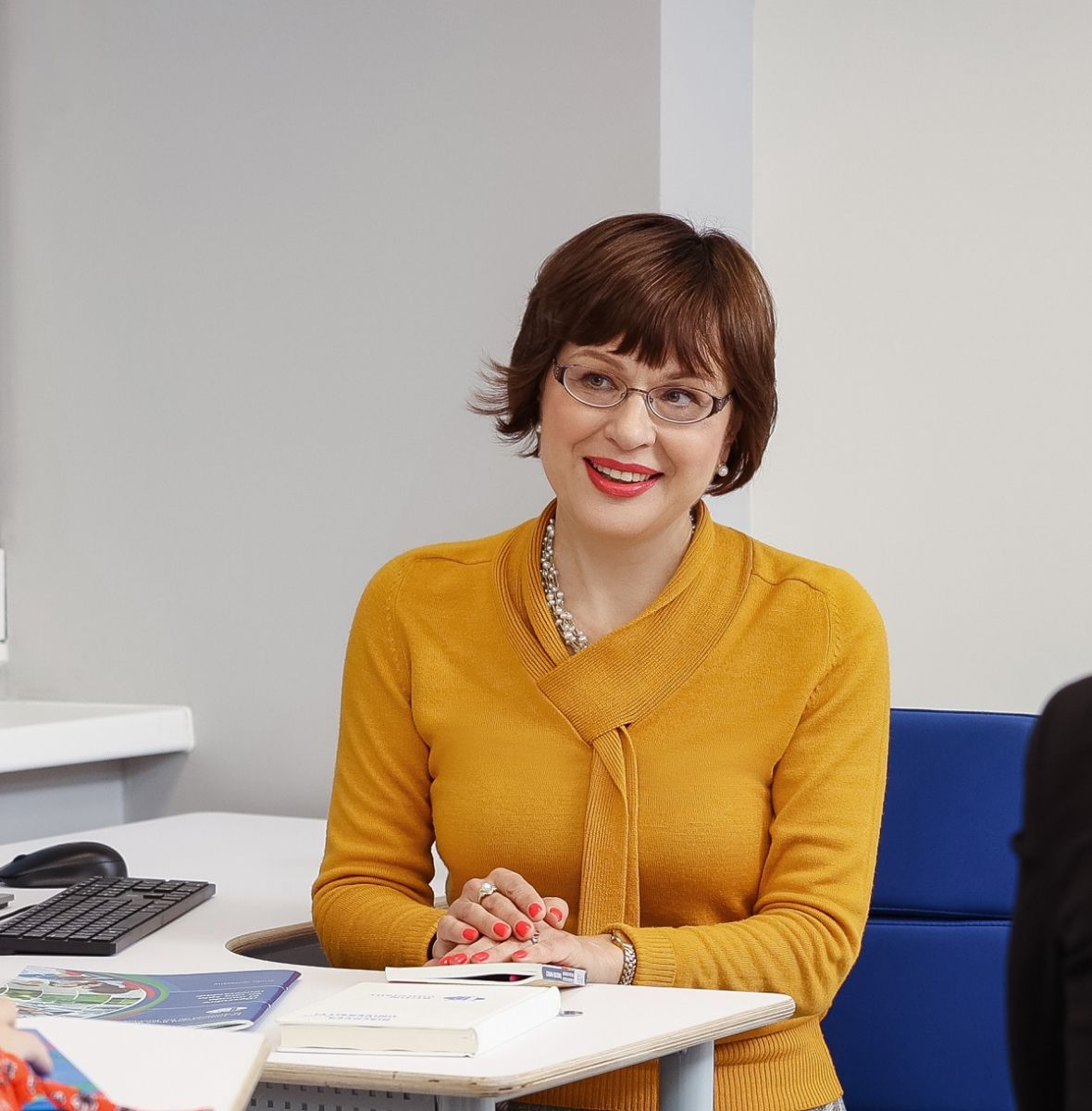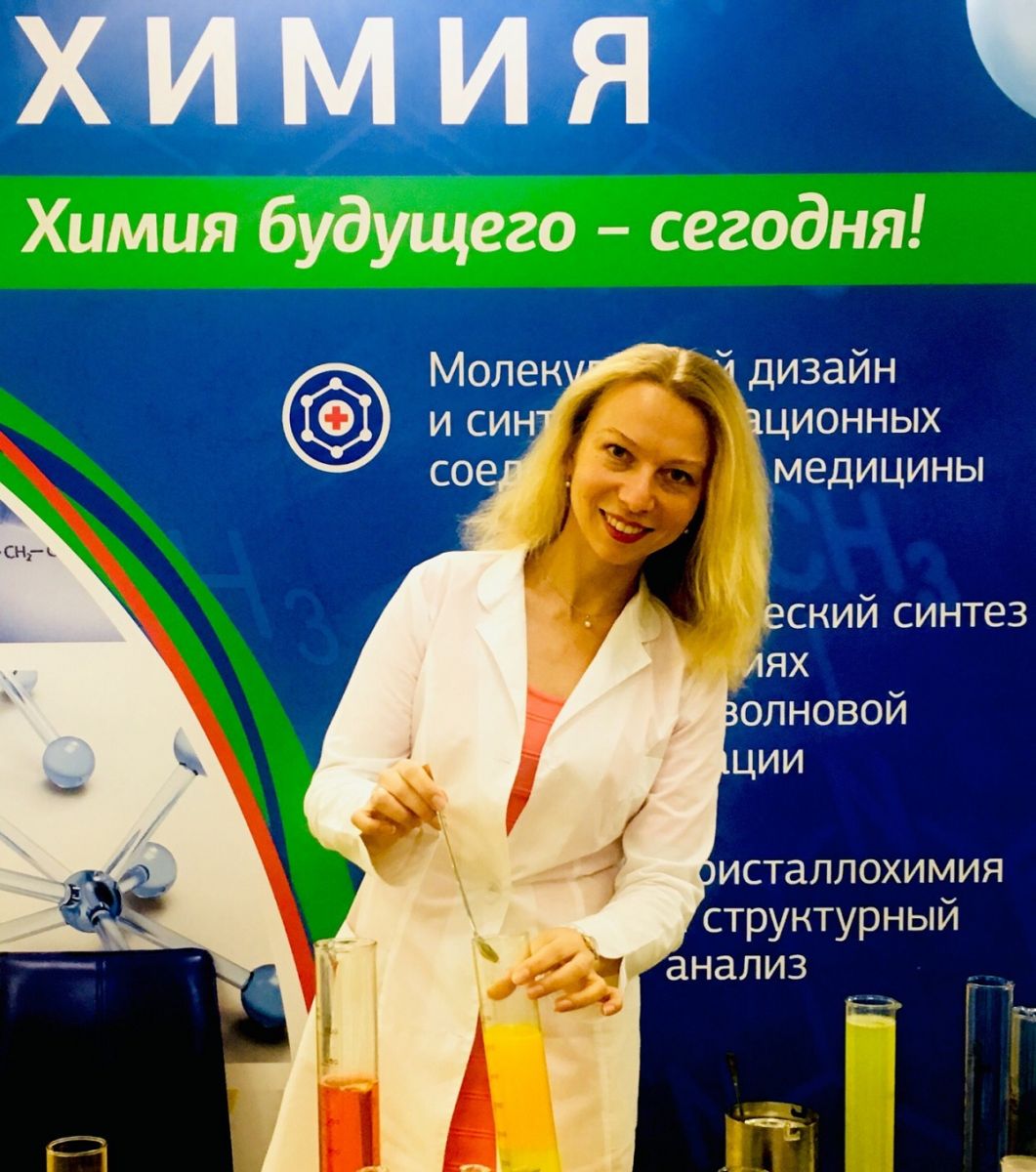International Day of Women and Girls in Science: women scientists of the RUDN talk about their path to science
Women engineers, inventors and discoverers are changing our lives: creating new technological solutions, making discoveries. They invented the first Soviet antibiotic (Zinaida Ermolyeva), developed one of the first high-level computer programming languages (Grace Murray Hopper) and even invented car wipers (Mary Anderson).
On the eve of the International Day of Women and Girls in Science, we talked with women scientists of the RUDN, who told about their scientific career and research, about what inspired them to do science and what is most favorite in it.
Irina Andreevna Kochetkova
— Candidate of Physical and Mathematical Sciences, Associate Professor of the Department of Applied Computer Science and Probability Theory of the RUDN. She graduated with honors from bachelor’s and master’s degrees, and now teaches at her native Faculty of Physics, Mathematics and Natural Sciences. Irina Kochetkova has developed a set of models for analyzing and evaluating the effectiveness of priority access in wireless networks with elastic and streaming traffic, and much more.
“Science is an exciting life, an academic environment and a sense of freedom. I was inspired by my grandparents — Valentin Mikhailovich and Iraida Andreevna Gudkov, graduates of the Moscow Mining Institute. They defended their PhD theses in one day, later grandfather became a doctor of sciences. I close my eyes and see pictures from my childhood. His students and colleagues from the department came to visit my grandfather — they enthusiastically discuss news in science, recall a business trip to Albania, where my grandparents trained engineers — surveyors. In the morning, grandpa sits at his desk — around books, reference books — and writes notes in thick notebooks, outputs formulas. And my grandmother and I solve problems from the Correspondence school of mathematics at Moscow State University. Their eyes are burning with interest, enthusiasm, inspiration and curiosity. Good health to my beloved grandmother!
I analyze the performance of networks and telecommunications systems using the methods of mathematical theory of teletraffic, queuing theory and probabilistic methods. Mathematics... Since childhood, I have been “soaked” with love for her from my grandmother. Grandfather is one of the pioneers in the field of mathematical methods of subsurface exploration. He used the methods of probability theory and mathematical statistics in his works. Computer science... Dad brought two books on computer science in high school, and after graduation, mom gave me a computer. How interesting it was to understand, configure, “mess around” in the system unit! Telecommunications... The lectures of Professor RUDN, my Teacher, Konstantin Evgenievich Samuilov, are always such a charge of energy, confidence, inner strength that there is no doubt which scientific direction the future belongs to!
The most favorite thing in science is creativity, the process of “immersion” in science and lifestyle. The difficult thing is to “immerse yourself” in the creative scientific process when something distracts," Irina Kochetkova.
Elvira Dovletyarova
— Director of the Agrarian and Technological Institute of RUDN. Elvira Dovletyarova knows exactly how important green infrastructure is for the health of society, and shares her knowledge at forums and conferences. One of the achievements is that together with a team of biologists, ecologists and IT specialists, she develops a system for monitoring green spaces using a smart device “Tree Talker”.
“Science is inspiration, search, knowledge. I have been doing science since school — I was a member of the school scientific society, studied the impact of pollution of the Volga River on fish. I was motivated by a great thirst for the unknown and thirst for knowledge. From the first year in the student scientific society, I began to study the effect of heavy metals on plants. At the same time I met Lyudmila Vladimirovna Mosina, a professor, doctor of biological sciences, my supervisor.
I am still working on this topic. It is predicted that by 2050, 80% of the world’s population will live in cities. Not only health, but also the future of our civilization depends on the quality of people’s lives. And this largely depends on the green spaces — they affect the human condition and form the environment. The study of urban, forest park, forest ecosystems, soil microbiota will help humanity to create a sustainable urban environment in order to be healthy and happy.
The most difficult thing in science is setting up an experiment. A lot depends on it. The design of the experiment determines not only the quality of the results obtained, but also their reliability. The most favorite thing in science is to talk about your successes, to work in a team of like—minded people. And also to popularize your research for a wide range of readers — not only for scientists, students and colleagues, but also for the mass audience. Because a scientist is not just a researcher. A scientist is a person who can tell people about his research so that it helps them in life,” Elvira Dovlyarova.
Olga Chesnokova
— Doctor of Philology, Professor, Professor of the Department of Foreign Languages of the Faculty of Philology of the RUDN. Olga graduated from the Historical and Philological Faculty of the Peoples’ Friendship University named after P. Lumumba, defended her PhD and doctoral dissertation, went from assistant to professor of the Department of Foreign Languages. She identified typological features of Latin American onomastics based on a system-functional approach, modified the methodology of comparing translations of literary text in the paradigm “Russian-Spanish-English”, lectured more than once in Spain and Latin America. More about achievements.
“Science is a fascinating and incessant movement towards knowledge. My natural curiosity and enthusiasm led me to science. I am engaged in many areas in linguistics: the variability of the Spanish language, the semiotics of literary text, folklore, onomastics, translation studies. In science, it always turns out that the more we know, the more we don’t know and at the same time the more we love what we do. The most difficult thing is not to be afraid to take risks. And the most pleasant thing is to see the results of your work and enjoy the learning process and the opportunity to share it with others: students, graduate students, colleagues,” Olga Chesnokova.
Ekaterina Markova
— Candidate of Chemical Sciences, Associate Professor of the Department of Physical and Colloidal Chemistry of the RUDN, responsible for the scientific work of students of the Faculty of Sciences. Ekaterina is sure that the future of science belongs to active, enthusiastic youth, so she shares her skills in discovering and creating new nanocrystalline catalysts for processing hydrocarbons with her students.
“Science is a profession that unites people of different religions, countries and cultures to solve the mysteries of the universe.
My school years fell on a period of discussion and search for ways to prevent various viral infections. I wanted to know the principle of action of medicines and methods of obtaining them, including remedies for incurable diseases.
My scientific interests are connected with the queen of sciences — chemistry! I am very proud to be involved in the multidisciplinary field of physical chemistry — catalysis. Doing what I love, I plunge into an unknown world in which I create new substances, control and manage chemical processes. I love science for its versatility and unpredictability, for the fact that it is impossible to put an end to science,” Ekaterina Markova.
The project to develop a cellular model of the placenta became the winner in the Scientific Materials category of the Young Scientists 3.0 competition, organized with the support of the Presidential Grants Foundation and T-Bank.
Ten scientific journals published by RUDN University have been included in the highest level of the state list of scientific publications, the White List.
Forests are not only the lungs of the planet, but also home to millions of species. However, it has remained unclear how underground interactions between trees and fungi affect forest species richness in different climatic conditions. Previous studies have yielded conflicting results: in some regions, the dominance of certain fungi reduced tree diversity, while in others it increased it.
The project to develop a cellular model of the placenta became the winner in the Scientific Materials category of the Young Scientists 3.0 competition, organized with the support of the Presidential Grants Foundation and T-Bank.
Ten scientific journals published by RUDN University have been included in the highest level of the state list of scientific publications, the White List.
Forests are not only the lungs of the planet, but also home to millions of species. However, it has remained unclear how underground interactions between trees and fungi affect forest species richness in different climatic conditions. Previous studies have yielded conflicting results: in some regions, the dominance of certain fungi reduced tree diversity, while in others it increased it.



